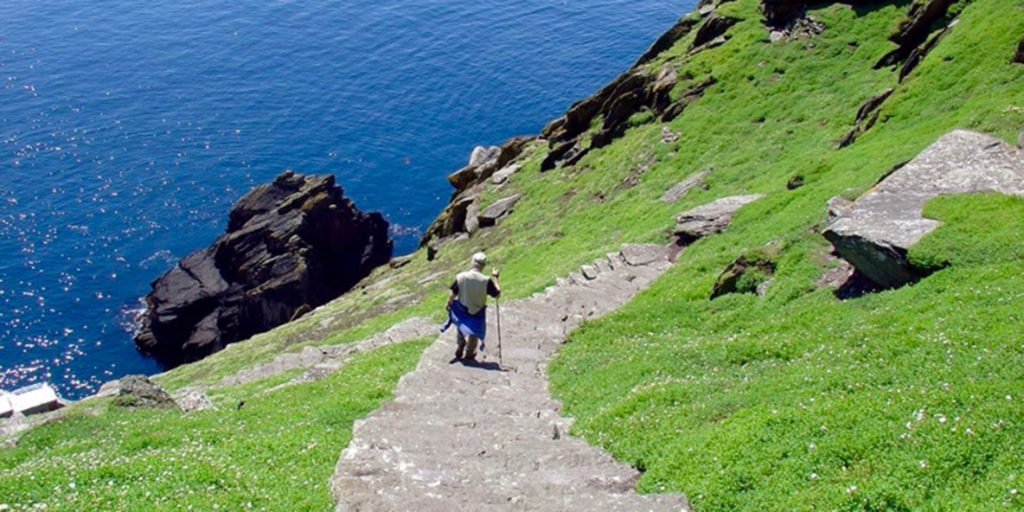Imagination, Empathy and Action: Being Christian in a Fragmented Age. That is the title of a presentation I will be giving in St. Louis in October. The title was given to me after engaging conversation with the senior pastor, Travis Winckler of Second Church, (Presbyterian).
Second Church is located in the heart of St. Louis in Central West End. It is near the Delmar Divide, a term made popular by a 2012 BBC four minute documentary. Delmar Boulevard is a socioeconomic and racial dividing line of the city. It is literally and figuratively a Divide. In stark terms, North of Delmar is primarily African American and poor. South of Delmar is white and rich. Ferguson where Michael Brown was killed is north of Delmar. Crestwood where the police officer Darren Wilson lives is south.
A Place of Transition
St. Louis has a long and troubled segregation history going back to the Jim Crow era. A segregation order issued in 1916 has not been fully undone. A 2010 study reported that St. Louis is one of the most segregated cities in the US. Second Church is on the threshold of the Delmar Divide.
Thresholds are liminal spaces. Between “what was” and the “next.” The “in-between.” A place of crossing over. A threshold, a liminal space, is a place of transition, where transformation takes place, from disorientation to integration. The sacred happens in liminal spaces. Many suggest that we live in a time of critical transition. For the planet, for humanity, even for American democracy. How we live forward in times of change and move through wreckage is important. Crucial. I am struck by Second Church’s naming imagination, empathy and action as three topics to be explored in a fragmented age. I will learn much from them.
Compassion and Empathy are not the Same
As I anticipate my time with Second Church I wanted to review the distinction between empathy and compassion. A lot has been written on this. What I provide here is common straightforward distinctions.
Compassion and empathy are not the same. Even though each needeth each. In brief compassion is to “feel for.” Empathy is “feeling with.” Compassion involves decision-making and is connected to the part of the brain connected to learning and reward. Empathy is linked to the part of the brain that registers emotions (pleasant and unpleasant) and pain. It is related to consciousness and self-awareness (mirror neurons play a part in this too). That’s what neuroscientists report.
Compassion can Combat Empathetic Distress
Some suggest that empathy without compassion can lead to burnout. “Compassion can combat empathetic distress.” With empathy you are aware of the feelings and emotions of others and experience them for yourself through the power of imagination. To be compassionate allows for some space and makes it more possible to provide direct action on behalf of another. “We need a combination of both empathy and compassion to be most helpful to people.”
The Dalai Lama says this: “If you want others to be happy practice compassion. If you want to be happy, practice compassion.”
Jesus says, “Be compassionate as God is compassionate.” (Thanks to Marcus for that translation. That one brief sentence begs to be unpacked.)
Marcus Borg in a late journal entry wrote: “empathy, compassion and gratitude, these three are essential.”
Do Not Let What Divides Us Define Our Existence
Even though external realities, like the ones seen from the Delmar Divide, indicate we live in a “two-world existence” we cannot let what divides us completely define our existence. We must see ourselves in one another and recognize how deeply interconnected we are. Our actions have consequences for our individual lives and the world at large. Work tirelessly for systemic change. Be kinder. Consider a global ethic. This is sacred work.
Second Church is an open place. Allowing for possibilities. Even in a wearied and torn place. I will let you know what I learn from their experience.
In the meantime, be compassionate, have empathic concern, feel for and feel with. And don’t just stand there, do something. Help to make this world a better place. Where you are. We mustn’t burn out or suffer from “compassion fatigue.” We must practice the art of loving one another. And ourselves as well. And be humane humans. To be Christian in this fragmented age is nothing short of that.
I will share some thoughts of author Stephen Kauffman on developing a global ethic and his invitation to reinvent the sacred in our Continuing Conversation on our website.




Grace and peace to you Marianne! Thank you for a wonderful vision of Christian love. As we grow in compassion and practice empathy our world changes. Between all the hoopla about the new Supreme Court nominee, the #MeToo movement, and the upcoming elections, we have plenty of chances to practice what we preach. How we conduct ourselves on social media and among each other will show whether or not we truly believe that empathy and compassion will make a difference or whether we are all talk and no action. Can we show tolerance and kindness to those whose positions on these issues, and others, go against everything that we believe? May we “be compassionate as God is compassionate.” In this current hostile environment we must be the ones to reach across the divide in humility and love.
William. Thank you for this response. Yes we are at a critical time when I suggest the question is being called on what we think of humanity and what is required to help us flourish and live into a future together. I have just experienced Second Church. A wonderful community. Empathy, compassion, imaginative reconstruction of our understanding of Christianity is not just an abstraction for them. They are grappling with how to live in this time of transition on the ground. To be compassionate as God is compassionate also suggests a remagining of God. Compassion I think suggests impartiality. Not to be mistaken for indifference. Our notions of broadening and deepening notions of God reflect our notions of what we are capable of as well. Yes. It’s up to us. Thanks for being part of this conversation. Continue it!
Hi Marianne, my prayers will be with you as you present on this topic. As a previous person wrote “This is timely.” As you wrote “We Must see ourselves in one another and recognize & realize our deeply interconnected we are.” This needs to happen daily to make the world a better place. May God be with you.
Bruce. I deeply appreciate your prayerful support. Keep it coming! We are deeply interconnected. It grieves me to hear the tendency to intensify norms in an effort to secure identity. We have done this thoughtout history. But now I see the time to find our identity as being with and not against. We can keep our diversity and cultural particularities. I think that is essential. But I hope it will indeed be our humanity that connects us underneath our nationalism and religious particularities and social conventions. Pray for us all, Bruce.
Hi, Marianne. This is timely. Alan Alda was interviewed by Christiana Amanapour on her nightly show regarding a book he’s written on communication. It occurs to me that through empathetic/compassionate communication comes the erasing of the divide. Learning how to listen, listen, listen without judgement seems to be a big part. Can someone be empathetic and compassionate, but without the ability to be open and listen accomplish as much?
If you’ve not already visited it, the Basilica in St. Louis is well worth the time! It has more gorgeous mosaics than we ever saw in Europe.
Go well on your trip and in sharing. Thanks for “being”.
Evelyn. Thanks so much for being in touch. I will learn much about the realities of empathy and compassion from second church. They are more than good ideals or words to claim. We must live them. I am counting on them being in us. Waiting to be evoked. The Basilica in St Louis. Thanks to you I now know about it! I will definitely make time to see the mosaics. Look forward to my journey and the honor of being at Second Church.